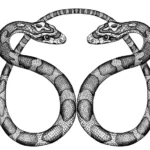The Allure of Big Eyes: Unpacking the Science, Psychology, and Cultural Significance
Picture this: you meet someone with eyes that seem to sparkle, almost like they can see right through you. They’re not just big, they’re captivating. Throughout history, people have been drawn to folks with big eyes. In fact, they’ve been the inspiration for all sorts of stories and even superstitions. So, let’s dive into the science, psychology, and cultural significance of big eyes. We’ll explore what makes them so intriguing and uncover the truth behind what they might—or might not—reveal about a person.
The Science and Psychology Behind Big Eyes
Have you ever noticed how some people just have those big, captivating eyes? It turns out there’s a whole lot more to it than meets the eye (pun intended!). Let’s dive into the science, psychology, and even the cultural significance of having big eyes.
What Makes Eyes Appear Big?
Our genes play a big role in determining eye size, just like they do with hair color or height. Different ethnicities tend to have characteristic eye shapes and sizes too. And just like the rest of our bodies, our eyes go through developmental phases, growing throughout childhood.
But why did big eyes evolve in the first place? Some scientists believe that bigger eyes might mean better peripheral vision, giving our ancestors an edge when spotting predators or prey. Others think it’s more about communication – with larger eyes, even subtle eye movements become more noticeable, adding a whole other layer to nonverbal cues.
Interestingly, there might even be a connection between eye size and the brain! Research suggests that people with larger eyes might have certain brain regions involved in processing emotions and social information that are more developed.
The Psychology of Big Eyes – Why Do We Find Them Appealing?
From a psychological standpoint, big eyes have a powerful effect on how we perceive others. Think about classic beauty standards or even adorable cartoon characters – big eyes are often a central feature. This suggests an inherent “attractiveness bias” where we’re naturally drawn to larger eyes.
But it goes beyond just aesthetics. Larger eyes tend to evoke feelings of trust and approachability. It’s like a “halo effect” where we unconsciously associate big eyes with positive qualities. This could be because big eyes make people appear more baby-faced, triggering our innate nurturing instincts.
Then there’s the power of nonverbal communication. With more surface area to work with, big eyes can convey a wider spectrum of emotions, making someone seem more expressive and relatable.
Beyond the Surface: Personality, Culture, and More
While we can’t make sweeping generalizations, some believe that people with big eyes tend towards certain personality traits like empathy, openness, and curiosity. While more research is needed to confirm any strong links, it’s an intriguing thought.
Culturally, big eyes hold different meanings around the world. Some cultures associate large eyes with beauty and intelligence, while others might tie them to specific personality traits.
Of course, it’s important to acknowledge the stereotypes that sometimes come with having big eyes. People might assume those with large eyes are naive, easily manipulated, or even trying to use their looks to their advantage. Like all stereotypes, these are oversimplifications and don’t reflect the vast diversity of individuals.
The Potential Advantages of Big Eyes
Could there be a “Big Eye Advantage”? In fields like acting, public speaking, or jobs that involve a lot of interpersonal interaction, it’s possible that those expressive peepers could provide a leg up. Imagine the impact of a heartfelt plea with big, soulful eyes!
Think about it – what was advantageous for our ancestors in terms of survival might not hold the same weight in our modern world. It makes you wonder how these evolutionary quirks might play out in the future.
With constantly evolving beauty standards, technological advancements, and even the possibility of genetic engineering, who knows how our perception of big eyes might change in the years to come? One thing’s for sure: the allure of big eyes is a fascinating intersection of biology, psychology, and culture that will continue to intrigue us for generations to come.
What Does It Mean to Be a Big-Eyed Person? Exploring Potential Traits
We’ve already talked about some cool stuff about big eyes, but let’s dive even deeper! While it’s crucial to avoid stereotypes, certain personality traits are often associated with people who have large, expressive eyes. Let’s explore some of these potential connections.
Emotional Depth and Expression
People with big eyes often seem to wear their hearts on their sleeves. They’re like open books, easily expressing a whole spectrum of emotions. This emotional openness often translates to empathy – they really “get” other people’s feelings and make awesome listeners. You’ll probably find them to be cheerful and optimistic folks who brighten your day!
But this heightened sensitivity can also be a double-edged sword. While their expressiveness makes them relatable, it can also lead to misinterpretations. Their openness might be mistaken for sadness or anger, and their empathy can make them more susceptible to emotional overload.
Imagination, Passion, and a Thirst for Knowledge
These big-eyed buddies are also imaginative powerhouses, always dreaming up new ideas and exploring their creativity. When they find something they’re passionate about, whether it’s a new hobby or a special someone, they go all in with contagious enthusiasm. And don’t be surprised if they’re always up for trying new things – their curiosity knows no bounds!
The Evolutionary Perspective
Now, why do we find big eyes so captivating? Well, some scientists believe it goes way back to our evolutionary roots. Think about babies – those big, adorable peepers! Those features actually trigger something called the “baby schema” in our brains, making us feel protective and affectionate. So, it’s no surprise that big eyes, even in adults, are seen as inherently attractive. It’s like our brains are hardwired to think, “Aww, so cute!”
The Influence of Culture
But here’s the thing: culture plays a huge role too! In some cultures, big eyes are seen as a sign of innocence and purity, while in others, they’re associated with wisdom and intelligence. It’s amazing how something as simple as eye size can have such different meanings around the world, right?
Nonverbal Communication and Gender Stereotypes
Big eyes are like superpowers when it comes to nonverbal communication! A simple glance can convey so much sincerity and trustworthiness. But here’s where it gets really interesting – did you know that our perceptions of big eyes can differ based on gender? Yep, stereotypes are still alive and well! Big-eyed women are often perceived as nurturing and gentle, while big-eyed men might be seen as charismatic and trustworthy. It makes you wonder how much of what we perceive is based on actual traits versus societal expectations, huh?
Modern Influences and Evolving Perceptions
And in today’s world, things get even more complex. With social media filters and beauty standards constantly evolving, our perception of big eyes is probably shaped by a whole bunch of modern influences that weren’t around in the past. It’s a fascinating area of study that’s still evolving!
To wrap things up, remember that while big eyes can offer some intriguing clues about a person, it’s just one piece of the puzzle. Every individual is unique, and their eyes are just one facet of their amazing, complex selves!
Are Very Big Eyes Attractive? Exploring Beauty Standards and Personal Preferences
So we’ve been talking about what makes eyes attractive, and it’s natural to wonder if having really big eyes gives someone a leg up in the looks department. It’s a bit complicated and boils down to a mix of personal taste, cultural influences, and maybe even a dash of evolutionary biology!
The Evolutionary Perspective on Big Eyes and Attraction
Scientists who study how humans have evolved have noticed something interesting: babies and little kids tend to have larger eyes compared to their heads than grown-ups do. This has led some to believe that bigger eyes might subconsciously make us think of things like helplessness and innocence, triggering a kind of nurturing instinct in people. It’s like when we see a cute puppy – we just want to take care of it! This might be a reason why some find bigger eyes more appealing.
Cultural Influences on Beauty Standards
And don’t forget about the power of culture! What’s considered beautiful varies all around the world. In some Asian cultures, having large eyes is often linked to being feminine, innocent, and pure. On the other hand, in many Western cultures, people associate larger eyes with attractiveness, good health, and even intelligence.
The Subjectivity of Beauty
But here’s the thing: beauty is totally in the eye of the beholder! What one person finds incredibly attractive, another person might not even notice. There’s no magic formula for what makes someone’s eyes “perfect.” Some folks love big, expressive eyes, while others find smaller eyes equally, if not more, captivating. It’s all about individual preferences, and that’s what makes the world so interesting!
To sum it up:
- There’s a chance that people might see bigger eyes as more attractive because of how we’ve evolved and the cultural ideas we’ve grown up with.
- Many cultures associate large eyes with positive traits like beauty and innocence.
- At the end of the day, whether you find very big eyes attractive depends entirely on your own personal taste.
Debunking the Myth: Why We Can’t Say Which Ethnicity Has the “Largest Eyes”
We’ve all probably wondered at some point, “What ethnicity has the largest eyes?” It’s a common curiosity, but the truth is, there’s no simple answer. While it might seem like certain ethnicities have bigger or smaller eyes, it’s way more complicated than that. Eye size, just like hair color or height, is influenced by a whole bunch of factors, not just where your ancestors came from.
The Role of Genetics and Individual Variation
Think about it like this: even within your own family, you’ll see a variety of eye sizes. You might have inherited your grandma’s wide, bright eyes, while your sibling got your dad’s smaller, deeper-set eyes. That’s because genetics, the way our genes mix and match, plays a huge role. Each ethnic group has tons of genetic diversity within it, so it’s impossible to say that everyone from a certain background will have the same size eyes.
Age, Environment, and Medical Conditions
And it’s not just genes. Our age can make a difference too. Babies and little kids always look like they have these huge, adorable eyes, right? That’s partly because their faces are still small, so their eyes seem bigger in proportion. As we grow up, our faces change, and our eyes might not seem as large.
Believe it or not, even the environment can play a part. Some scientists believe that people who live in sunny places might have evolved to have slightly smaller eyes. It’s like a natural way to protect their eyes from the sun’s glare.
Then, of course, there are medical conditions that can affect eye size. For example, people with nearsightedness, also known as myopia, often have eyes that appear larger because the shape of their eyeball is slightly elongated.
Celebrating Diversity and Challenging Stereotypes
The bottom line is that trying to link specific eye sizes to certain ethnicities just doesn’t work. It’s like saying all people with brown hair are good at math – it’s a stereotype that doesn’t hold up! We’re all unique, and our differences, including our eye size, are what make the world so interesting. Let’s celebrate that diversity instead of trying to put people into boxes based on their physical features.
How to Tell If You Have Big Eyes: A Guide to Understanding Eye Proportions
So you’re curious about your eye size? You’re not alone! Many people wonder if their peepers are on the larger side. While there’s no strict definition of “big eyes,” there are a few ways to figure out if yours are more prominent than average.
Genetics and Geographic Location
One thing to remember is that genetics play a huge role. Did your parents or grandparents have big eyes? If so, you might have inherited those genes. But keep in mind, families are full of surprises, and even if your relatives all have smaller eyes, you might be the one who breaks the mold.
Interestingly, where you live might also have something to do with your eye size! Some studies suggest that people living in places with less sunlight tend to develop larger eyes. It’s thought that bigger eyes can capture more light, which would be helpful in darker environments. Fascinating, right?
Measuring Your Eye Proportions
Now, let’s talk about how to actually tell if your eyes are big. Grab a ruler or a measuring tape – we’re going to do some comparing!
Here’s what you can do:
- Eye Width: Measure the widest part of your eye going across (horizontally).
- Space Between Your Eyes: This is called your interpupillary distance (fancy, huh?). Measure the distance between the centers of your pupils.
- Nose Width: Measure across the widest part of your nose.
- Mouth Width: Relax your mouth and measure across the widest part.
Now, what do these measurements tell you?
- If your eye width is much larger than your nose width or mouth width, you’re likely rocking those big eyes.
- If the distance between your eyes (that’s your interpupillary distance) is just a bit wider than the width of one of your eyes, that’s another sign you might have big eyes.
- Keep in mind your overall face size, too. If you have a smaller face, your eyes might appear larger in proportion.
Embracing Your Unique Features
Remember, beauty standards vary all over the world. What’s considered “attractive” in one culture might be different in another. Ultimately, the most important thing is that you feel confident and happy with your unique features!
Looking for more information about bear with down syndrome? Check out our blog post for more information.















